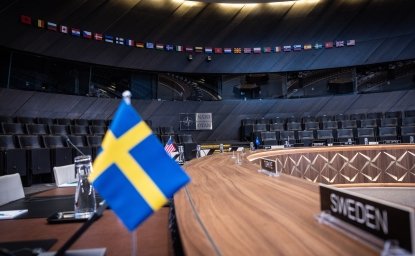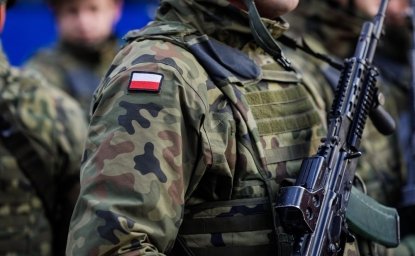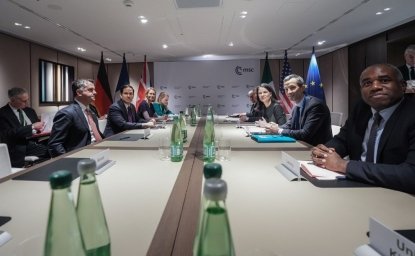181. Once In The Club: Continuing Reform In The Czech Military and NATO

The achievement of security in a post-Warsaw Pact Europe dominated by NATO continues to be a formidable task for the Czech national security infrastructure. The Czech Republic earned its NATO membership as an overall result of its progress in its political and economic transitions and by fulfilling the criteria that NATO set out for the Czech Republic in terms of its civil-military relations and interoperability goals.
The Czech Republic, like the other post-communist states of Europe, continues to face the challenge of achieving its security by balancing the forces of domestic and international politics. The military has had to contribute to this endeavor in two main respects. First, the Army of the Czech Republic (ACR) has focused on military competence in order to be accepted into and subsequently contribute to the NATO system of integrated collective security. Second, the national security institutions of the Czech Republic have been engaged in the process of making the appropriate adaptations required to serve a democratic state.
In order to consolidate the democratization of the Czech Republic's post-communist national security institutions, all the relevant actors in the process continue to confront the ideological adjustments that necessarily accompany shifts in political systems. The liberalization of the political system and the transformation of economic patterns has inevitably challenged the Czech officer corps whose members share many of the same expectations and values as their civilian counterparts in post-communist Czech society.
The transition of the Czech military institutions to democracy has involved two main dimensions. First, achieving democratic political control of the military and second, achieving democratic military professionalism. The concept of democratic political control does not focus exclusively on the conventional emphasis on civilian control. Democratic states face the additional and more demanding challenge of ensuring that military security is achieved with minimal sacrifice of democratic practices, norms, and values. The concept of democratic military professionalism argues that a brand of military professionalism developed within the context of an authoritarian political system does not easily transfer to a democratic political system.
The Czech Republic continues to face some democratic deficits in each of these dimensions of the military democratization problem. In the democratic political control dimension, problems persist in the relationship between the ACR, the Government, parliamentary bodies, the President's national security staff, and society at large. The relationship between the civilian components of the national security structure, which still lack sufficient defense expertise, and the General Staff, which still dominates the formulation of national security policy remains underdeveloped. These relationships lack the maturity and sense of shared roles and responsibilities for national security matters found in more advanced democracies.
The ACR is also burdened with a historically poor relationship with society that predates the communist era. The prestige of the Czech military dropped off in the immediate wake of communism and has only recently begun to inch upward due primarily to the positive performance of Czech troops in UN and NATO peacekeeping operations. In general, the ACR remains somewhat isolated from Czech society and must work diligently to achieve its goals of professionalization that will rely on societal support in terms of manpower, tax dollars, and understanding Czech responsibilities in European security matters resulting from NATO membership.
Democratic military professionalism issues also challenge the ACR. The Czech military continues to face formidable recruitment and retention obstacles. Quality of life issues such as pay and housing have not markedly improved over the last few years. There is also little interest among Czech youth in serving as either conscripts or professionals in the ACR. Legislation to correct a top heavy officer corps structure is still pending in the Parliament as frustrated junior officers continue their exodus from the service. The Czechs have not yet implemented a career concept for ACR professionals that would outline standard career progression steps for officers and NCOs.
Czech models of officership and leadership remain virtually unchanged from the Soviet era in that leadership is not a focus of officer development and initiative is still lacking in the junior ranks. While some progress has been made on the development of a NCO corps, these Warrant Officers are valued more for their technical skills. Officers still refuse to delegate significant leadership responsibility to junior officers and NCOs. Lack of resources has prevented much reform in the military education system which continues to be dominated by faculty from the communist era largely disinterested in adapting teaching strategies to help transform the ACR's officer corps so that it is intellectually compatible with NATO militaries.
The state of the democratization of the Czech national security infrastructure indicates that the development of mature civil-military relationships in post-communist societies may likely take decades. At the beginning of the democratization process, most analysts predicted that once post-communist governments understood the necessary technical reforms necessary to transform their political system, elected democratic officials and civil servants could subsequently move to carry out the necessary reforms. In practice, however, the legacy of the communist era has proven remarkably overbearing in terms of the adaptation of formal and informal relationships among government bureaucrats, politicians, and military officers.
Meanwhile, several of the post-communist states of Europe have been certified as full-fledged democracies and have been granted the status of NATO membership. The obligations of membership require the ability to fully participate in the consultation process within NATO, to contribute to the collective defense mission, NATO's new evolving missions, and alliance budgets. In addition, membership obligations include conforming to alliance principles, policies, and procedures. Disappointment within NATO over the lukewarm support of key Czech politicians and government officials for NATO's offensive operations in Serbia in the first weeks of Czech-NATO membership, has led some alliance members to question whether the Czechs have a mature understanding of the obligations of NATO membership.
Fulfilling these obligations requires democratized civil-military relations – the ability to coordinate closely between defense and foreign ministries and the cabinet both within the Czech Republic and between the Czech Republic and NATO countries and NATO bodies – aimed at achieving the alliance's democratic principles. Such coordination is still lacking in the Czech Republic and other post-communist states. The democratization of civil-military relations has yet to evolve beyond the understanding of concrete organizational technical reforms. The transformation of attitudes forged in the Communist era remains incomplete. The developed democracies of the West must continue to focus attention on fostering approaches to national security that emphasize allocating resources toward the implementation of specific and coherent national security strategies within a collective security system of Euro-Atlantic democratic states.
Author

Global Europe Program
The Global Europe Program is focused on Europe’s capabilities, and how it engages on critical global issues. We investigate European approaches to critical global issues. We examine Europe’s relations with Russia and Eurasia, China and the Indo-Pacific, the Middle East and Africa. Our initiatives include “Ukraine in Europe”—an examination of what it will take to make Ukraine’s European future a reality. But we also examine the role of NATO, the European Union and the OSCE, Europe’s energy security, transatlantic trade disputes, and challenges to democracy. The Global Europe Program’s staff, scholars-in-residence, and Global Fellows participate in seminars, policy study groups, and international conferences to provide analytical recommendations to policy makers and the media. Read more

Explore More
Browse Insights & Analysis
Trump Speaks with Putin in Effort to End Russia-Ukraine War

From Partner to Ally: Sweden’s First Year in NATO

“Security, Europe!”: Poland's Rise as NATO's Defense Spending Leader
